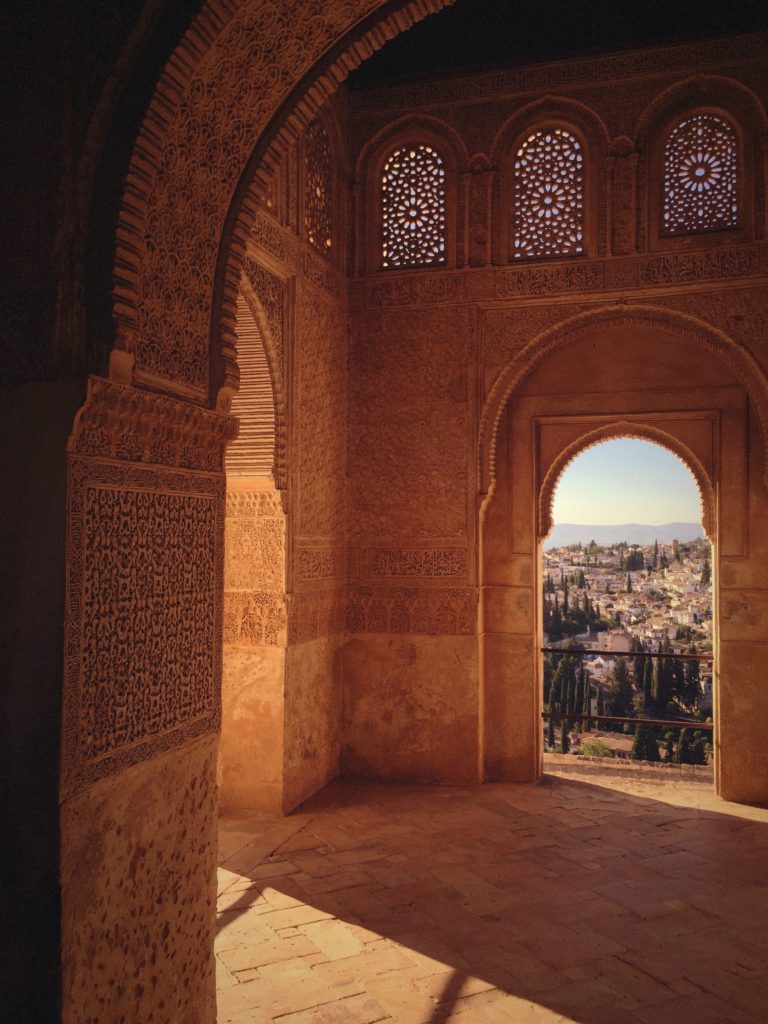On Sifter of Dust, we present scriptural passages from the great religion of Islam. In a previous essay on Christianity, we discussed how the concept of the oneness of God- the worship of an abstract Reality who was the source of goodness- had an incredible unifying, and indeed, civilizing effect on Europe. People were then able to see themselves as not all that different from the other tribes, and gradually the society developed a common sense of identity based on common moral and spiritual values. Of course, tribalism still existed in other forms, as the wars that encompassed Europe for much of the last 2000 years attest, but the foundation was being laid for the social and political structures that would be erected in later centuries.
Christianity’s early spread through Europe happened in the first 600 years after Christ, and then it was diffused world-wide when European countries encompassed the globe in the age of Imperialism, after 1600. In the year 610 AD however, after Christianity’s initial spread, the Revelation of the Prophet Muhammad arose out of the desert and would soon bring under its banner all of the Middle East, Persia, north Africa and the southern portions of Europe. Similar to Europe before Christ, the pattern of life before the Prophet Muhammad in these areas was almost entirely a tribal one, with the worship of many different “gods”. The tribes of the Arabian desert were so frequently at war that they officially agreed on a month of peace once a year to give them all a break. War was literally built into the calendar.
Islam raised its structure on the theological foundations of Judaism and Christianity. The Prophet Muhammad declared Himself to be the next in the line of Prophets and Messengers dating back to pre-historic times. He accepted both Moses and Jesus as true. As the Prophet explained in the Quran, the common identity of all the Messengers that had come before Him, and indeed all humanity, was their submission to One God, the same abstract, all-pervasive Force that other monotheistic religions worshipped. “Islam” means “submission”, and all the founders of the religions before the Prophet Muhammad were regarded as being part of one religion- the religion of “submission” to One God. The “oneness of God”, or as the Prophet described it- the “unity of God”- was the unifying idea for, not only all Muslims, but all peoples and all previous revelations from God. Islam was therefore the most universal religion the world had ever seen, as it encompassed all the peoples and religions in a single unifying perspective. “All people are your brothers, either they are your brothers in faith or your brothers in creation”, stated Ali Ibn Talib, the Prophet’s son-in-law and Islam’s first theologian.
The effect of the Prophet Muhammad’s teaching was both profound and dramatic. Islamic civilization literally arose like a phoenix out of the desert and within a few centuries was the most advanced civilization on earth. Like Christianity, the framework of One God not only brought diverse peoples into a common identity, it created social norms that led to stability and the advancement of intellectual, artistic, scientific, and spiritual enterprises of the highest quality. Islam’s tolerance and acceptance of Judaism and Christianity, defining both as honored “People of the Book” allowed Jews and Christians to live in Islamic lands under the Prophet’s own protection. Baha’u’llah would later describe Islam as like a “garden” filled with diverse and wondrous fruits, as peoples and cultures mixed together and produced a new civilization.
It’s worth meditating a bit on the concept of the “unity of God”, as expressed in the short statement summarizing the message of Islam- “There is no god, but God”. The Quran describes this God in every chapter with the introduction “In the name of God, the Compassionate, the All Merciful”. The Quran further defines how this “One God’ should be worshipped. “Serve God, and do not associate anything with God, and be good to your parents, and relative, and orphans and the poor, and to neighbors close by and neighbors remote, and to the companion at your side, and to the traveler, and to your wards, for God does not love the arrogant, the boastful…” In another passage of the Quran, God states– “Verily I am God: there is no god but Me, so serve Me only, and establish regular prayer for celebrating My praise.”
The opposite of this perspective was “idol worship”- putting one’s faith in a material thing. In the Prophet’s time, it was a statue or other image, or a “god” that was not real, as opposed to the One God who was truly real. Muslim philosophers and poets would define it more abstractly- anything that kept you from embodying the virtues of God- including your own ego (or someone else’s). Baha’u’llah would later refer to the “god” of our “idle fancies”, ideas with no intrinsic value but to which we get attached. To worship God is to engage in the sublime exercise of worshipping all that is good and true and right. “There is no god”– “but God” is a statement of profound spiritual and psychological truth.
